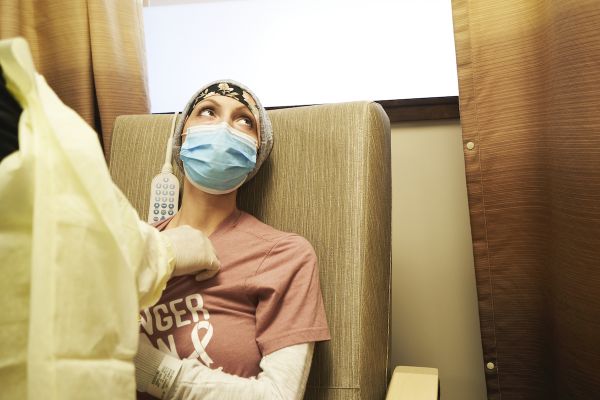Many people think of immunotherapy as a recent treatment for cancer patients, but it dates, in fact, to 1891.
That’s the year William Coley, a bone sarcoma surgeon, injected streptococcal organisms into a patient who had inoperable cancer. His hope was the subsequent infection would jumpstart the man’s immune system.
It worked: the patient’s immune system came alive to fight off the infection and, at the same time, his malignant tumor, which disappeared.
With that, Dr. Coley — Chief of Bone Sarcoma at Memorial Hospital in New York — spent the next 40 years injecting 1,000-plus patients with bacteria, dubbed Coley’s Toxins, to achieve the same results.
What happened to immunotherapy? Enough doctors in Coley’s time doubted his results, and instead began to use other just-emerging treatment strategies: radiation therapy and chemotherapy.
“Immunotherapy is not a new idea,” says Igor Puzanov, MD, Senior Vice President for Clinical Investigation, Director of the Center for Early Phase Clinical Trials and Chief of Melanoma at Roswell Park Comprehensive Cancer Center. “It just fell out of favor and then came back in the last 10 years or so.”
Here, research teams have uncovered new opportunities to expand the benefits of immunotherapy for more cancer patients. In the coming year, they will conduct new clinical trials to apply these groundbreaking strategies that take better advantage of bodies’ own cancer-fighting abilities.
“The immune system is a powerful tool, and only in the last decade have we really begun to tap into its potential as a cancer-fighting powerhouse,” Dr. Puzanov says.
Now, Roswell Park scientists and oncologists have it in their sights to expand the benefits of immune-based approaches to cancer types that typically do not respond in a lasting way to immunotherapy — including breast, prostate, colorectal, ovarian, melanoma, kidney and pancreatic tumors.
Dr. Puzanov notes reports by the American Cancer Society (ACS) in recent years have shown that newer types of immunotherapy and targeted therapies have changed the treatment of melanoma, lung and kidney cancers. As Dr. Coley demonstrated back in the late 19th century, immunotherapy spurs the body’s immune system to attack cancer cells more effectively.
Today, drugs called immune checkpoint inhibitors are used to help the immune system’s T-cells fight cancer by manipulating the T-cells’ checkpoints or “inner brakes,” which keep the immune response from being too strong. These new drugs block proteins that would normally suppress T-cells’ immune response against cancer cells. Research teams run clinical trials to test how to make these drugs work more effectively by combining them with other treatments, including targeted drugs and other immunotherapies.
As part of these efforts, a Roswell Park team earned a five-year, $14.54 million award from the National Cancer Institute (NCI) to expand a promising immunotherapy platform.
Funded through the NCI’s Program Project Grant program, this prestigious grant will fund five clinical trials, all focused on a strategy for making some of the most common immunotherapies work for more patients. The five trials, all of which will begin this year, will look at metastatic colorectal cancer, checkpoint-resistant advanced melanoma, and advanced ovarian cancer.
Some tumors are resistant to immunotherapy with checkpoint inhibitors and researchers are exploring ways to make these “cold” tumors more vulnerable to the treatment.
Never miss another Cancer Talk blog!
Sign up to receive our monthly Cancer Talk e-newsletter.
“Our goal with this project is to convert cancers that are traditionally checkpoint-resistant into treatable, ‘hot’ tumors so that more patients will be able to benefit from some of the most commonly prescribed immunotherapies,” says Dr. Kalinski.
Other clinical trials at Roswell Park involve patients with breast cancer and non-small cell lung cancer; and many are being conducted to explore how to make radiation therapy an effective companion to immunotherapy.
The ultimate goal of all of this work is to expand “the population of patients who can be treated with immunotherapy,” according to Dr. Puzanov.
“We will continue to find out how to make immunotherapy work for more people, because it saves lives,” he says.




